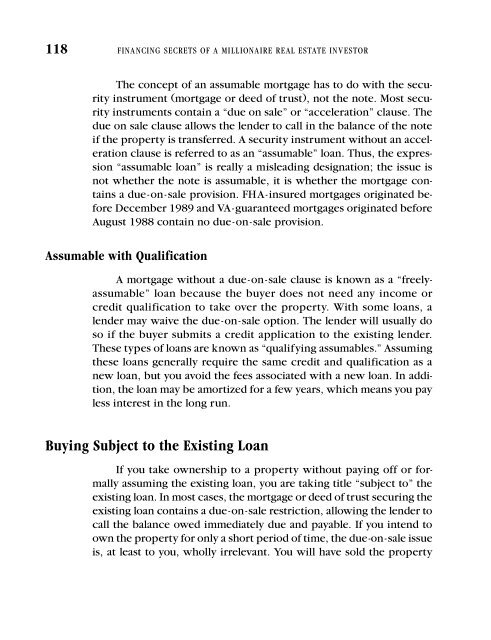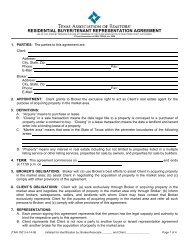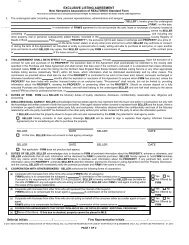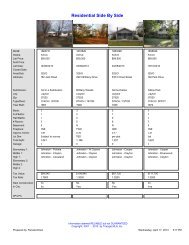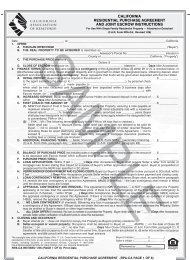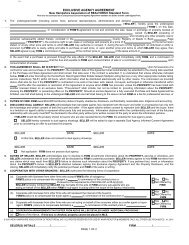financing secrets of a millionaire real estate investor.pdf
financing secrets of a millionaire real estate investor.pdf
financing secrets of a millionaire real estate investor.pdf
You also want an ePaper? Increase the reach of your titles
YUMPU automatically turns print PDFs into web optimized ePapers that Google loves.
118 FINANCING SECRETS OF A MILLIONAIRE REAL ESTATE INVESTOR<br />
The concept <strong>of</strong> an assumable mortgage has to do with the security<br />
instrument (mortgage or deed <strong>of</strong> trust), not the note. Most security<br />
instruments contain a “due on sale” or “acceleration” clause. The<br />
due on sale clause allows the lender to call in the balance <strong>of</strong> the note<br />
if the property is transferred. A security instrument without an acceleration<br />
clause is referred to as an “assumable” loan. Thus, the expression<br />
“assumable loan” is <strong>real</strong>ly a misleading designation; the issue is<br />
not whether the note is assumable, it is whether the mortgage contains<br />
a due-on-sale provision. FHA-insured mortgages originated before<br />
December 1989 and VA-guaranteed mortgages originated before<br />
August 1988 contain no due-on-sale provision.<br />
Assumable with Qualification<br />
A mortgage without a due-on-sale clause is known as a “freelyassumable”<br />
loan because the buyer does not need any income or<br />
credit qualification to take over the property. With some loans, a<br />
lender may waive the due-on-sale option. The lender will usually do<br />
so if the buyer submits a credit application to the existing lender.<br />
These types <strong>of</strong> loans are known as “qualifying assumables.” Assuming<br />
these loans generally require the same credit and qualification as a<br />
new loan, but you avoid the fees associated with a new loan. In addition,<br />
the loan may be amortized for a few years, which means you pay<br />
less interest in the long run.<br />
Buying Subject to the Existing Loan<br />
If you take ownership to a property without paying <strong>of</strong>f or formally<br />
assuming the existing loan, you are taking title “subject to” the<br />
existing loan. In most cases, the mortgage or deed <strong>of</strong> trust securing the<br />
existing loan contains a due-on-sale restriction, allowing the lender to<br />
call the balance owed immediately due and payable. If you intend to<br />
own the property for only a short period <strong>of</strong> time, the due-on-sale issue<br />
is, at least to you, wholly irrelevant. You will have sold the property


